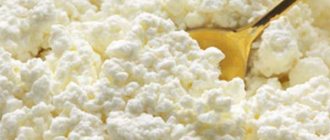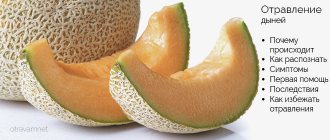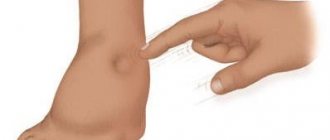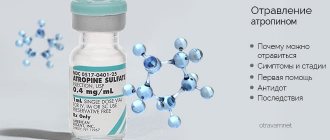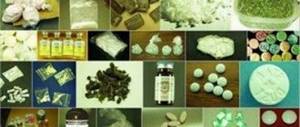Food poisoning is always accompanied by numerous symptoms and intoxication of the body. And very often, when there is no longer nausea and diarrhea, the temperature has returned to normal, and the patient feels much better, a new problem arises related to the food system. According to statistics, constipation after poisoning occurs in 65% of cases. And very often patients, as well as their relatives, do not understand what should be done in such a situation. Since the patient has just begun to eat normally and nutritiously, why should he again follow a strict diet? Or do I need to do enemas periodically? Or give the patient more foods that have a lot of fiber? Below we describe the main reasons that lead to the development of this unpleasant condition, as well as modern effective recommendations for the treatment of constipation after poisoning. Also described are groups of drugs that can solve this problem in a patient.
Causes of constipation after intoxication
The cause of any type of intoxication of the body is the absorption of toxic substances into the bloodstream.
After this, poisons begin to provoke the development of inflammatory processes, and the clinical picture is made up of certain signs that are considered common to the state of poisoning.
Proper therapy, as a rule, puts the body in order within a few hours, or simply relieves acute intoxication symptoms. The patient's condition improves significantly.
But feeling well after poisoning is not a sign that the small intestine has already been fully restored for further full functioning.
Some more time must pass for complete regeneration of the systems, especially the digestive tract.
So, incomplete regeneration of the small intestine is the first cause of constipation after poisoning.
The second reason is dehydration. During vomiting and frequent loose stools, the body loses a significant amount of fluid (in intensive clinics, up to forty percent of the total volume of moisture is removed). And in the absence of abundant drinking and intravenous infusions, dehydration of the body develops, which invariably affects the functioning of the intestines.
What to do if the temperature rises due to poisoning
Another reason for the “fixation” of the intestines can be the intoxication therapy itself. After all, as a rule, the first method of helping a victim of toxins is intensive lavage of the stomach and intestines (the body on its own is not able to cope with poisons and quickly remove them from the digestive tract, preventing their absorption into the human bloodstream).
Therefore, one of the negative effects of this procedure is the disruption of natural gastric and intestinal motility.
And even moreover, during rinsing, along with toxins, food debris also comes out, which significantly reduces the formation of feces.
Almost always, intoxication therapy is accompanied by the prescription and administration of drugs such as absorbents. They are necessary for the absorption of toxins in the alimentary canal. But here, too, a side effect is constipation, which develops with long-term use of these drugs. Activated carbon, enterosgel and other similar medications cause “hardening” of the intestines.
And the last reason for the development of constipation in the period after intoxication is the disturbed intestinal microflora in the form of the negative impact on it of various autogenous bacteria that develop and multiply there during intoxication.
Until the intestinal microflora is restored, the victim will experience various types of dyspeptic disorders, including constipation.
Possible complications
After short-term intoxication, which occurred in a mild form, there is a chance that there will be no serious consequences. But if the poisoning is more severe, health problems after this are inevitable. As a result, you may develop:
- Infectious-toxic shock, manifested in the form of high temperature, decreased blood pressure, increased heart rate and impaired consciousness.
- Dehydration, causing drying of the skin and mucous membranes, shortness of breath, and heart rhythm disturbances.
- The occurrence of hemorrhoids (against the background of significant blockage of the intestines with hardened feces, hemorrhoidal bumps and cracks appear after difficult bowel movements).
- Bleeding of the gastrointestinal tract, accompanied by dark vomiting, severe abdominal pain, pale skin, tachycardia, and a drop in blood pressure.
- Acute pancreatitis, when due to toxic damage to the pancreas, abdominal pain occurs, spots around the navel, vomiting, temperature 38 ° C (the problem can only be solved surgically).
- Diseases of the gastrointestinal tract (for example, colitis).
- Rectal prolapse (especially in children).
- Renal failure, which is manifested by edema, decreased diuresis, increased blood pressure, yellowing of the skin and nausea.
The worst thing is if general poisoning occurs with damage to several systems at once. In this case, serious disruptions occur in the functioning of several organs at once, and this is a long and difficult treatment of intoxication, and complete recovery is sometimes impossible.
Symptoms of constipation after intoxication
If a person, after poisoning, has stool less than twice a week and the process of defecation does not bring the feeling of a final cleansing of the stomach, then this condition may indicate constipation. In addition, stool loses its normal consistency (hardens). Constipation may also be accompanied by the following clinical picture:
- General weakness of the body;
- Lack of appetite;
- Spasmodic pain in the epigastric region;
- Spasms during bowel movements;
- Feeling of heaviness in the lower abdomen.
All these symptoms are characteristic of the condition of constipation in the period after treatment of acute or chronic poisoning.
Briefly about food poisoning
No one is safe from food poisoning. You can eat low-quality or stale food not only by accident at home, but also in restaurants, mini-coffee shops, pizzerias and other catering establishments. In addition, with the emergence of many supermarkets and various shopping centers, the chances of buying expired products have increased significantly.
Most often these days, food poisoning is diagnosed among lovers of fast food and other fast food. As a rule, the products from which all this is prepared contain many artificial additives: dyes, thickeners, as well as taste and smell enhancers.
In addition, these establishments often do not adhere to all food storage rules and often even use expired ingredients. Therefore, food poisoning can happen to each of us sooner or later.
Recipes, menus and diet products
Recipes, menus and diet products
Home treatment for constipation after intoxication
When poisoning occurs, for the entire period of therapy you should not only adhere to a certain diet, but also exclude from your diet foods that make up a fairly extensive list. For example, spicy and salty foods, canned food of any kind, fatty meat, fish, smoked foods, strong coffee, especially instant coffee.
Homeopathic remedies for poisoning
To prevent or treat constipation during the period after intoxication, a certain diet is also necessary.
It is important to include such foods and dishes in your diet as:
- Bran bread;
- Fermented milk products - kefir, fermented baked milk, cottage cheese, yogurt. All these products must be environmentally friendly, that is, they must not contain preservatives, dyes or artificial fillers.
- Porridges cooked in water - buckwheat, oatmeal, millet.
- Soups, preferably vegetable, cooked in water or chicken broth. Pork or beef broths should be excluded from your diet.
- The bread should not be fresh, it should be yesterday’s bread.
- Fruits are best consumed baked.
It is also important to fill the intestines and stomach with liquid. Your drinking ration should include warm (not cold or hot) water (still), compotes (berry and fruit), green tea, fruit juice, rosehip decoction.
Also at home, the process of treating constipation after poisoning includes an active lifestyle. Loads should be increased gradually after the illness. Morning exercises, jogging in the fresh air and walking in the evenings are the basis for treating constipation.
Thanks to mobility, natural intestinal motility will improve and all its functions will be quickly restored, including the process of defecation.
But, if constipation continues for more than two weeks, you should immediately consult a doctor for qualified diagnosis and treatment of this condition.
Prevention
To prevent the development of intoxication, the patient must:
- Eat a healthy diet. To prevent constipation, you should include foods rich in fiber (dried fruits, cereals, bran, vegetables) in your menu and reduce your consumption of meat, flour and confectionery products. The normal amount of fiber for an adult is 20–30 g per day. Fermented milk products are beneficial for the gastrointestinal tract: for a gentle laxative effect, you can drink 1 glass of kefir at night.
- Monitor your water consumption. Fluid deficiency leads to hardening of stool, so to prevent constipation you need to drink at least 30–40 ml of water per 1 kg of body weight.
- Change your lifestyle. Patients suffering from constipation should stop smoking and frequent drinking, increase the amount of physical activity and replace sugary and protein snacks with plant-based foods.
- Undergo preventive medical examinations in a timely manner. Regular medical examinations allow you to diagnose pathologies of the gastrointestinal tract and other internal organs at an early stage, which reduces the risk of developing severe intoxication due to chronic inflammation or mechanical obstruction of the intestine. If symptoms appear, you should immediately consult a proctologist or gastroenterologist: timely therapy reduces the likelihood of severe complications of the disease.
If the patient is at high risk of developing intestinal obstruction, prophylactic stenting is recommended - installation of an artificial cylindrical frame (stent) that prevents narrowing of the intestinal area.
Defecation is a natural way of removing waste products from the body. Indigestible food elements, drug metabolites, and toxic substances neutralized by the liver are released with feces. Intoxication due to constipation worsens the general condition of the body. It is harmful to adults, but is especially dangerous for children and the elderly.
Medical treatment of constipation
Medical treatment of constipation, of course, includes drug therapy.
The most popular are the so-called pharmacological prokinetic drugs.
This group of drugs is designed to stimulate natural intestinal peristalsis, while eliminating the pathogenicity of constipation.
The group of prokinetics includes the following drugs:
- Motilium, Motila (all with the active substance Domperidone);
- Ganaton, Itomed and others (with the active substance Itopride);
- Neobutin (active substance trimebutine).
What to do if you have food poisoning with a high fever?
If the genesis of intoxication was microbial in nature, and therapy consisted of long-term use of antibiotics, then treatment of constipation will now require taking so-called drugs from the group of probiotics. These include: Hilak Forte, Linex, Bifiform, Enterol and Rioflora.
In certain cases (with prolonged constipation, more than 5 days and a feeling of heaviness in the lower abdomen), the doctor may also prescribe laxatives.
All laxatives are divided into two groups according to the mechanism of their effect on the human body. Osmotic drugs that relax the intestines are aimed at retaining moisture in the lumen of the herbal canal and increasing the volume of feces. Emollient laxatives are designed to soften stool and facilitate the process of defecation. As a rule, doctors prescribe drugs such as glycerol, petroleum jelly, senna herb, lactulose, bisacodyl or sodium docusate.
First aid and therapy
Conservative and surgical therapy is used to treat intoxication and the causes of the pathology. Drug therapy includes the following drugs:
- gentle remedies for constipation (Duphalac, buckthorn decoction);
- probiotics (Lactovit, Linex, Immunovit);
- antifoam agents (Espumizan);
- prokinetics to stimulate peristalsis (Motilium, Domperon);
- antispasmodics (Spazmalgon, No-shpa, Papaverine).
The following are prescribed as first aid in case of severe condition of the patient’s body:
- siphon enema;
- infusion therapy (droppers) with drugs to restore water-electrolyte balance and remove toxins (Ringer's solution, Reogluman, Trisol, etc.).
To treat mechanical constipation and some intestinal diseases, surgical intervention is used, the purpose of which may be the elimination of nodes, loops, adhesions and other mechanical obstacles, the formation of an anastomosis, the removal of a colostomy, the removal of a pathological section of the intestine, etc.
Preventive actions
To prevent the occurrence of intoxication due to constipation, it is necessary to eat properly. You should eat foods with fiber more often. It is recommended to limit the consumption of foods that slow down the process of emptying the intestines of feces (rice, white bread, strong teas, blueberries, red wine). It is important to observe the frequency of meals, eat often and in small portions.
You should regularly drink 1.5 to 2 liters of water. It is worth accustoming yourself to regular bowel movements. It is advisable to do this in the morning. Physical activity is important. Physical activity will help to avoid stagnation in the pelvic area.
It is necessary to undergo diagnostics for the presence of pathologies of the large intestine. Timely treatment of any gastrointestinal diseases will help avoid problems with bowel movements in the future.
Intoxication is a likely consequence of constipation in humans. The condition manifests itself with specific symptoms and requires immediate treatment due to the high risk of complications in the functioning of all organs. Compliance with a diet, regular diagnostics for the presence of infections in the intestines and sufficient physical activity are the basic ways to prevent constipation and accompanying intoxication.




